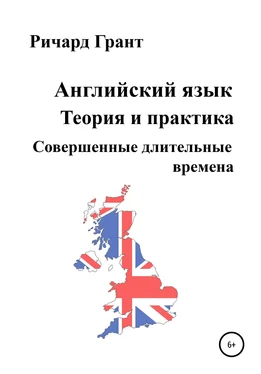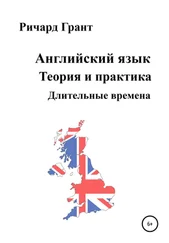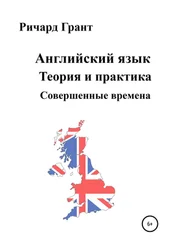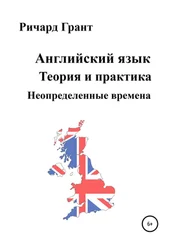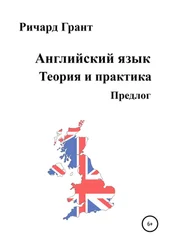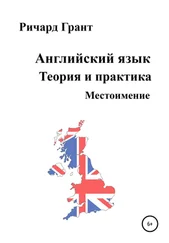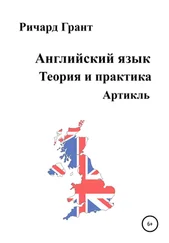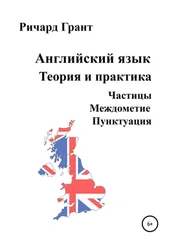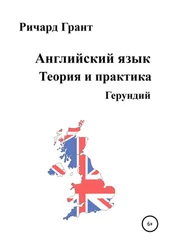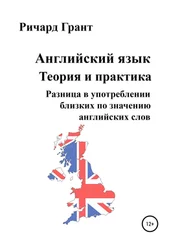Ричард Грант
Английский язык. Теория и практика. Совершенные длительные времена
Совершенные длительные времена обозначают действия, начавшиеся до момента речи ( Рresent Perfect Continuous) или до какого-момента в прошедшем или будущем ( Past Perfect Continuous, Future Perfect Continuous) и продолжающиеся вплоть до этого момента или после него.
Настоящее совершенное продолженное время – The Present Perfect Continuous Tense
Present Perfect Continuous Tense – настоящее совершенное продолженное время, описывает действие, которое началось в прошлом, до сих пор продолжается или только что закончилось.
С этим временем часто употребляются следующие обстоятельства времени: for – на протяжении, в течение, since – с какого-то времени, recently – недавно, на днях, all morning/day/week – все утро/весь день/всю неделю , lately – в последнее время.
Образование Present Perfect Continuous Tense
Утвердительная форма – Subject + have/has + been + verb (-ing) + …
It has been raining all day long. I’m sick and tired of this weather. – Дождь идет весь день . Меня достала эта погода.
Отрицательная форма – Subject + have/has + not + been + verb (-ing) + …
He hasn’t been working all weekend. He is lying. – Он не работал все выходные. Он врет .
Вопросительная форма – (Question word) + have/has + subject + been + verb (-ing) + …?
How long have you been dating him? – Как долго ты с ним встречаешься?
Короткие ответы
При ответе на вопрос, предполагающий ответ да или нет, используются следующие шаблоны:
Have they been sleeping? – Yes, they have. – (положительный ответ) – No, they have not. – (отрицательный ответ)
Has he been training? – Yes, he has. – (положительный ответ) – No, he has not. – (отрицательный ответ)
Упражнение 1
Раскройте скобки , употребляя глаголы в Present Perfect Continuous Tense.
1. The vegetables ( to boil) since 10 o’clock. 2. Helen ( to wash) the dishes for fifteen minutes. 3. My brother ( to stay) with us for three weeks, he hasn’t left yet. 4. She ( to live) in this house for five years but she doesn’t know her neighbors. 5. He ( to wait) for her answer for six months. 6. My classmates ( to write) a dictation since the beginning of the lesson. 7. It ( to rain) hard since morning, I can’t go for a walk. 8. The text is very difficult, the students ( to translate) it since the lesson began. 9. My sister ( to send) job applications for 3 months. 10. Sam ( to drive) a car for five hours now. 11. How long you ( to look) for her? It’s strange that you can find her nowhere.
Упражнение 2
Раскройте скобки , употребляя глаголы в Present Perfect Continuous Tense.
1. I ( to paint) the fence since morning but I haven’t finished it yet. 2. I ( to try) to find my documents since last Sunday. 3. I ( to look) for information on the subject since last Friday. 4. The sun is shining but the ground is wet because he ( to water) the garden for a long time. 5. You ( to talk) for almost an hour without stopping. 6. They ( to learn) Japanese for a couple of years. 7. Molly ( to paint) this picture for three days now. 8. She looks very tired. What she ( to do)? 9. The boss is very angry, because his secretary ( to type) the report for five hours. 10. Father ( to drill) holes in the wall since noon. 11. The tourists ( to do) the sightseeing since nine o’clock.
Упражнение 3
Раскройте скобки , употребляя глаголы в Present Perfect Continuous Tense.
1. He is a good player, because he ( to play) chess since he was five. 2. My brother ( to play) computer games for 3 hours. 3. You ( to work) as a computer programmer for more than fifteen years. 4. I ( to listen) to you very carefully. 5. We can’t see paths in the garden, because it ( to snow) heavily during the whole night. 6. The wind ( to blow) since yesterday. 7. He ( not to take) his medicine for the last week. 8. He ( to write) his summary since the lecture began. 9. My grandfather ( to collect) coins since he was a boy. 10. I ( to buy) food here since I came to this town. 11. We ( to save) the money for a holiday for a year. 12. Andy and Den ( to discuss) the plans for their winter holidays for two hours now. 13. The states of the roads are very bad here, though they ( to repair) them for the last few years.
Прошедшее совершенное продолженное время – The Past Perfect Continuous Tense
Past Perfect Continuous Tense – прошедшее совершенное продолженное время описывает действие, которое началось в прошлом, продолжалось какой-то период и закончилось как раз к моменту речи о нем или все еще продолжалось при наступлении другого действия в прошлом.
С этим временем часто употребляются следующие обстоятельства времени: for – на протяжении, в течение (за ним следует количество времени, например, all morning, five years), before – прежде чем , since – с тех пор, как (после since ставится конкретное время, дата или день недели) , how long – как долго (употребляется в вопросительных предложениях) , until/till – пока, до тех пор как , all morning, all day, all night long – все утро, весь день, всю ночь , by – к определенному моменту в прошлом).
Читать дальше
